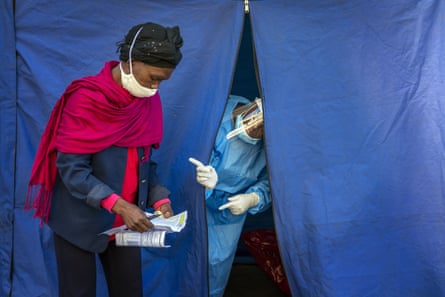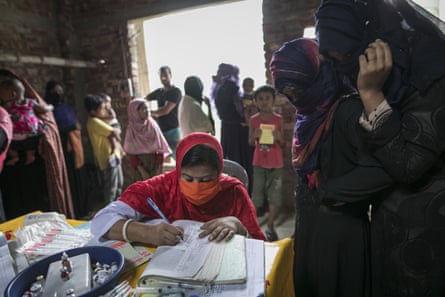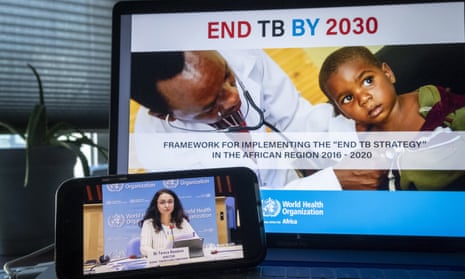Twelve months of Covid-19 has reversed 12 years of global progress against tuberculosis, worse than previously estimated.
The pandemic has resulted in nearly a 25% decrease in diagnosis and treatment around the world, according to research published on Thursday by a coalition working to end TB.
Due to the impact of the Covid pandemic on services, the number of people diagnosed and treated for TB in the worst-affected countries has dropped back to 2008 levels, said Stop TB Partnership’s executive director, Lucica Ditiu. A modelling study published last year estimated a setback of five to eight years.
“Twelve years of impressive gains in the fight against TB – including in reducing the number of people who were missing from TB care – have been tragically reversed by another virulent respiratory infection,” said Ditiu.
“I hope that in 2021, we buckle up and smartly address, at the same time, TB and Covid-19 as two airborne diseases with similar symptoms.”
The effect on countries has depended on their existing disease burden. Data from India and South Africa showed people infected with both TB and Covid-19 are three times more likely to die than those infected with TB alone, meaning preventive steps such as contact tracing and testing are essential in keeping rates low.

“After less than a year, a vaccine was developed and is now being deployed to help contain, and hopefully end, the Covid-19 pandemic,” said Thokozile Phiri Nkhoma, a Stop TB Partnership board member.
“But although TB has been around since the time of the pharaohs, the only approved vaccine is 100 years old and doesn’t fully work, especially in adults. First-line treatment for TB is several decades old, and drug resistance is on the rise, while the millions of people with TB who are not found and treated remain at risk of spreading the disease.”
Every year TB infects 10 million people and kills 1.5 million, more than any other infectious disease. Although Covid-19 overtook TB in 2020 as the most common cause of death from an infectious disease, TB still kills more people than Covid in low- and middle-income countries.
Some countries have fought hard to reverse the setbacks. India’s health ministry, after seeing a 70% drop in TB notifications in the first four months of 2020, integrated TB outreach into Covid-19 programming.
“TB didn’t go anywhere when the Covid-19 pandemic hit,” said India’s minister of health, Harsh Vardhan. “People just got distracted, health workers were redirected and health systems became overwhelmed.

“Recovery efforts succeed with political leadership and substantial resources, along with an insistence that Covid-19 outreach and prevention efforts include TB work, instead of replacing it.”
Last week the US administration approved $3.5bn (£2.5bn) in emergency funding for low- and middle-income countries to fight Covid-19 and help mitigate the impact of the pandemic on efforts to tackle TB, malaria and HIV, all of which have been severely affected by resources being redirected.
Peter Sands, executive director of the Global Fund, said that while it feels there may be light at the end of the tunnel as far as Covid goes, “for the communities we’re talking about here, those most at risk of TB, we’re right at the darkest point”.
